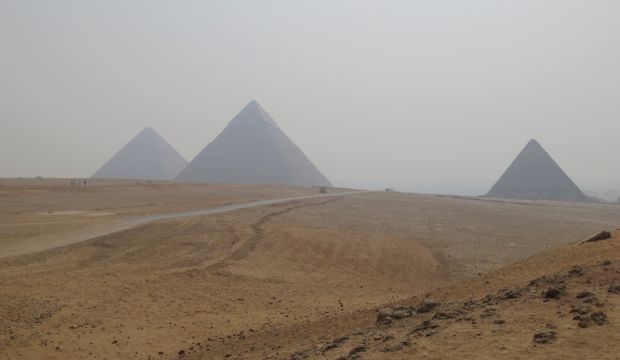I wrote this article after I decided to free myself of the burden of fear that characterized many of the past attempts to criticize Mohamed Hassanein Heikal, the man who contributed to the failure of Gamal Abdel Nasser’s pan-Arab project more than its imaginary enemies did.
Heikal, with all due respect, is a mere storyteller whose discourse is still imbued with an anti-colonialist rhetoric despite the end of colonialism—an attribute he exclusively gives to the West. This is why he has no qualms about advocating Iran’s expansionist project in the region. Heikal’s support for Iran is not recent and goes back to before his recent anti-Saudi Arabia remarks.
No wise person can trust Heikal’s legacy as a historian. By his legacy I do not mean his contradictory stances which should not be taken seriously anyway. Those who read his books realized this fact right from the first page. He often brags about how world leaders, from Nasser to Anwar Sadat to King Mohammed V of Morocco to the princes of the Gulf, sought his counsel on every decision they made.
His ill-informed views on the Arabian Gulf preceded the Saudi-led campaign in Yemen which seems to have prompted his recent remarks. His knowledge of the Gulf is inadequate and his books that deal with the topic are full of false, fabricated and even absurd information, including his claim that in 1971 he had a more than two-hour meeting with King Faisal Bin Abdulaziz Al Saud in Alexandria. In fact, this account can serve as a key to understanding Heikal’s delusions of grandeur that led him to believe that he can still carry on with his hobby of storytelling even at an age marked by an easy flow of information and technological development. In fact, these developments will accelerate the demise of people like Heikal.
In most of his books, Heikal paints a picture of himself as a confidante and close companion of Arab leaders who include an array of figures, from Mohammad Reza Pahlavi to Sadat to King Hussein of Jordan to King Hassan II of Morocco, only to name a few. The only thing in common between those leaders is that they all have passed away and therefore there is no way one can verify Heikal’s claims.
After a hiatus that lasted for years, Heikal recently decided to once again play the storyteller on TV. This time he chose Al Jazeera Arabic TV channel despite his previous accusations to the Qatari network of normalization with Israel.
This is not the first time Heikal has contradicted himself. Following a visit to the UAE, during which he praised the country’s awakening, Heikal fabricated a silly story claiming that Iran has a right to the three Emirati islands it now occupies. According to Heikal, Tehran bought the islands from the Arabs under a deal aimed at bolstering the Arab identity of Bahrain. Heikal’s claims are offensive not only to the Bahraini people and government but to the Shi’ite sect who rejects the questioning of its Arab identity.
Heikal’s discourse is embarrassing even to the remaining Nasserists. Iran’s occupation of the three Emirati islands is an Arab issue before it is an Emirati one. Heikal’s claim of Iran’s entitlement to the three islands which Iran only occupied after oil was discovered and Britain withdrew does not deny UAE’s sovereign right to retake them.
Abdallah Laroui, a prominent Arab thinker, once described Heikal as “the custodian of the false Arab consciousness.” I fully share Laroui’s view. In fact, I have always thought of Heikal’s oeuvre as akin to science fiction and his writings mainly aim to pander to the emotions of readers.
The problem with Heikal is that his ideas have done more harm to Egypt than to other countries. It is the Egyptian intellectuals’ responsibility to rid the history of their country of Heikal’s delusions. Heikal’s false ideas have contributed to the distortion of the history of Egypt more than any other country. In his Autumn of Fury, Heikal claims that Sadat slipped poison into Nasser’s coffee in the presence of Yasser Arafat.
Outside the Arab world, Heikal’s analyses and predictions are viewed as mere jokes. They include his claim that an extremist nationalist Serbian group is behind the 9/11 attacks; that the US provided Israel with reconnaissance aircrafts in the 1973 Arab-Israeli War. This confirms that his recent anti-Saudi Arabia remarks are a continuation of the inflated ego of someone who is no longer capable of weaving more illusions at this critical moment in the history of the region.
Heikal reminds me of the character of the mother in Goodbye Lenin! The German film tells the story of a young man who seeks in the wake of the fall of the Berlin Wall to keep his fragile mother from learning that her beloved nation of East Germany as she knew it has disappeared.
It is high time to say: Goodbye Heikal!
